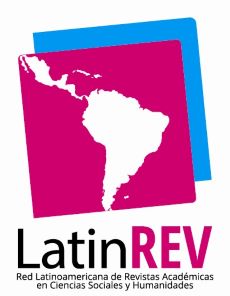Ways of thinking between generations
Dialogue, empathy and conflict resolution
DOI:
https://doi.org/10.29105/msc4.6-76Keywords:
Conflict resolution, Intergenerational programs, dialogue, empathyAbstract
Since the first human settlements, coexistence between people of different generations has been an inherent condition of the human being. In the course of the last decades, studies of intergenerational relations have given more attention to the benefits and difficulties that involve the participation of people of different ages. However, in the investigations focused on the application of intergenerational programs in different community life, the attention is usually focused on the benefits of said programs, leaving in second place the study of the possible conflicts that may arise within them and the forms of conflict resolution available to its members. This research focuses on the latter aspects, based on the identification of the conflicts that have risen in the development of the activities of the research program “Prevención de la violencia: Educando para una cultura de paz a través de la participación social” (Prevention of Violence: Educating for a culture of peace through social participation), with the objective of analyzing the ways in which intergenerational programs can influence the learning process of skills and techniques for conflict resolution. The methodology corresponds to a qualitative paradigm, using a case study of where the population is made up of three generations: children, university students (young adults) and senior citizens. The results show the importance of dialogue and empathy as fundamental elements in conflict resolution.
Downloads
References
Aedo, G., Garcés, K. y Pichulmán, E. (2022). Personas mayores: Experiencias de relaciones intergeneracionales dentro de los países latinoamericanos. Cuaderno de Trabajo social, 1(19), 145-169. https://cuadernots.utem.cl/wp-content/uploads/sites/10/2023/04/Cuaderno_ts-19-Art-6.pdf
Arango, V. (2007). Paz social y Cultura de paz. https://www.corteidh.or.cr/tablas/30445.pdf
Behar, D. (2011). Dilema entre los paradigmas cualitativo y cuantitativo de la investigación. Necesidad de una visión distinta. Medisan, 15(1), 145-149. http://scielo.sld.cu/pdf/san/v15n1/san20111.pdf
Belando-Montoro, M. (2015). Conflicto intergeneracional y algunos caminos hacia la sociedad intergeneracional, Prisma social, (14), 545-573. https://www.redalyc.org/pdf/3537/353744530017.pdf
Bouché, J. (2003). La paz comienza por uno mismo. Educación XX1, (6), 25-43. https://www.redalyc.org/pdf/706/70600602.pdf DOI: https://doi.org/10.5944/educxx1.6.0.351
Capilla, E. y Cubo, S. (2017). Phubbing. Conectados a la red y desconectados de la realidad. Un análisis en relación al bienestar psicológico. Pixel Bit. Revista de Medios y Educación, (50), 173-185. https://www.redalyc.org/pdf/368/36849882012.pdf DOI: https://doi.org/10.12795/pixelbit.2017.i50.12
Ceballos, P. (2013). Educación para la paz y la democracia. Raximhai, 9(1), 35-48. http://uaim.edu.mx/webraximhai/Ej-26articulosPDF/02-PedroCeballosRendon.pdf DOI: https://doi.org/10.35197/rx.09.01.2013.02.pc
Fernández-Herrería, A. y López-López, M. (2014). Educar para la paz. Necesidad de un cambio epistemológico. Convergencia Revista de Ciencias Sociales, (64), 117-142. http://www.scielo.org.mx/scielo.php?script=sci_arttext&pid=S1405-14352014000100005
García, R. (2010). Utilidad de la integración y convergencia de los métodos cualitativos y cuantitativos en las investigaciones en salud. Revista Cubana de Salud Pública, 36 (1), 19-29. http://scielo.sld.cu/pdf/rcsp/v36n1/spu04110.pdf DOI: https://doi.org/10.1590/S0864-34662010000100004
Generations United (2021). Making the case for intergenerational programs. https://www.gu.org/app/uploads/2021/03/2021-MakingTheCase-WEB.pdf
Greathouse, L., Morales, L. y De la Fuente, A. (2019). Prevención de la violencia: Aportes de la educación no formal para la construcción de una cultura de paz. En E. García (Ed.), Psicopatología de la violencia: Aspectos jurídicos y evaluación criminológica (42-65). Ciudad de México: Manual Moderno.
Gutiérrez, M. y Hernández, D. (2013). Los beneficios de los programas intergeneracionales desde la perspectiva de los profesionales. Pedagogía Social. Revista Interuniversitaria, (21), 213-235. https://www.redalyc.org/pdf/1350/135029517010.pdf
Institute for Humane Education. (2020). La guía solucionadora para educadoras y educadores que quieren cambiar el mundo. https://humaneeducation.org/wp-content/uploads/2021/08/SG_Spanish.pdf
Institute for Humane Education. (2023). What is Humane Education? https://humaneeducation.org/what-is-humane-education/
Instituto Nacional de las Personas Adultas Mayores (15 de diciembre de 2017). Los beneficios de las relaciones intergeneracionales en las personas adultas mayores [Blog]. Gobierno de México. https://www.gob.mx/inapam/articulos/los-beneficios-de-las-relaciones-intergeneracionales-en-las-personas-adultas-mayores
Jiménez, F. (2017). Paz ecológica y Paz gaia: Nuevas formas de construcción de paz. Revista de Cultura de Paz, 1, 7-29. https://dialnet.unirioja.es/servlet/articulo?codigo=7214126
Jiménez, F. y Jiménez, F. (2014). Una historia de la investigación para la paz. Historia Actual Online, (34), 149-162. https://dialnet.unirioja.es/servlet/articulo?codigo=4851747
Kaplan, M., Higdon, F., Crago, N. y Robbins, L. (2004). Futures Festivals: An Intergenerational Strategy for Promoting Community Participation. En E. Larkin, D. Friedlander, S. Newman y R. Goff (Eds.). Intergenerational Relationships: Conversations on Practice and Research Across Cultures. New York: The Haworth Press. DOI: https://doi.org/10.1300/J194v02n03_10
Larkin, E., Friedlander, D., Newman, S. y Goff, R. (2004). Intergenerational Relationships: Conversations on Practice and Research Across Cultures. Nueva York: The Haworth Press.
Lederach, J. (2014). The little book of conflict transformation. Nueva York: Good Books.
Levy, B., Chung, P., Bedford, T., Navrazhina, K. (2014). Facebook as a Site for Negative Age Stereotypes, The Gerontologist, 54(2), 172-176. https://www.semanticscholar.org/paper/Facebook-as-a-site-for-negative-age-stereotypes.-Levy-Chung/59ba28c493010fdbd33718b56e6fe1c99f547f65 DOI: https://doi.org/10.1093/geront/gns194
MacCallum, J., Palmer, D., Wright, P., Cumming-Potvin, W., Northcote, J. Brooker, M. y Tero, C. (2006). Community Building Through Intergenerational Exchange Programs: Report To The National Youth Affairs Research Scheme (NYARS). National Youth Affairs Research Scheme. https://www.researchgate.net/publication/279509787_Community_building_through_intergenerational_exchange_programs_Report_to_the_National_Youth_Affairs_Research_Scheme_NYARS
Raynes, N. (2004). Where We Are Now with Intergenerational Developments: An English Perspective. En E. Larkin, D. Friedlander, S. Newman y R. Goff (Eds.). Intergenerational Relationships: Conversations on Practice and Research Across Cultures (238-248). New York: The Haworth Press.
Rebollo, S. y Paz, M. (2019). ¿Jóvenes vs adultos? El desarrollo local y la salud comunitaria como un tándem estratégico. Revista Pilquen. Sección Ciencias Sociales, 22(3), 83-92. http://revele.uncoma.edu.ar/htdoc/revele/index.php/Sociales/article/view/2405/PDF
Renck, M. (Ed.) (2014). Teaching Compassion: Humane Education in Early Chilhood. http://library.lol/main/295C3AE2E8257D3A849C48B550FDB85B
Sánchez, M. y Díaz, P. (2005). Los programas intergeneracionales. En S. Pinazo y M. Sánchez, Gerontología: Actualización y nuevas propuestas (393-432). Madrid: Pearson Education.
The Humane Education Coalition. (2021). Core componets of humane education. https://drive.google.com/file/d/1JxOEeYaXhw38OB1DYHtqf9Dcd63JzmCQ/view
Zúñiga, I. (19 de septiembre de 2022). Sismos de 2017: ¿Cómo avanza la reconstrucción en México? Deutsche Welle. https://www.dw.com/es/terremotos-de-2017-c%C3%B3mo-avanza-la-reconstrucci%C3%B3n-en-m%C3%A9xico/a-63173405
Downloads
Published
How to Cite
Issue
Section
License
Copyright (c) 2024 Journal MSC Métodos de Solución de Conflictos. Revista Internacional de Investigación Científica y Práctica en MSC

This work is licensed under a Creative Commons Attribution-NonCommercial 4.0 International License.
Los autores/as que publiquen en esta revista aceptan las siguientes condiciones:
a. Los autores/as conservarán sus derechos de autor y garantizarán a la revista el derecho de primera publicación de su obra, el cual estará simultáneamente sujeto a la Licencia Creative Commons Atribución-NoComercial 4.0 Internacional. que permite a terceros compartir la obra siempre que se indique su autor y su primera publicación esta revista.
b. Los autores/as pueden realizar otros acuerdos contractuales independientes y adicionales para la distribución no exclusiva de la versión del artículo publicado en esta revista (p. ej., incluirlo en un repositorio institucional o publicarlo en un libro) siempre que indiquen claramente que el trabajo se publicó por primera vez en MSC Métodos de Solución de Conflictos.
c. Se permite y recomienda a los autores/as a publicar su trabajo en Internet (por ejemplo en páginas institucionales o personales) posterior al proceso de revisión y publicación, ya que puede conducir a intercambios productivos y a una mayor y más rápida difusión del trabajo publicado (Véase El efecto del acceso abierto).







 MSC Métodos de Solución de Conflictos Vol. 4 Núm. 7, Julio-Diciembre 2024, es una publicación semestral editada por la Universidad Autónoma de Nuevo León, a través de la Facultad de Derecho y Criminología. Dirección de la publicación: Av. Universidad s/n Cd. Universitaria C.P. 66455, San Nicolás de los Garza, Nuevo León, México. revistamsc.uanl.mx, revistamsc@uanl.mx. Editor responsable: Dr. Francisco Javier Gorjón Gómez. Reserva de Derechos al Uso Exclusivo núm. 04-2023-110310161600-102 ISSN 2992-8370, ambos otorgados por el Instituto Nacional del Derecho de Autor. Responsable de la última actualización: Dr. Paris Alejandro Cabello Tijerina, Facultad de Derecho y Criminología Av. Universidad s/n Cd. Universitaria C.P. 66451, San Nicolás de los Garza, Nuevo León, México. Fecha de la última modificación: 27 de junio de 2024.
MSC Métodos de Solución de Conflictos Vol. 4 Núm. 7, Julio-Diciembre 2024, es una publicación semestral editada por la Universidad Autónoma de Nuevo León, a través de la Facultad de Derecho y Criminología. Dirección de la publicación: Av. Universidad s/n Cd. Universitaria C.P. 66455, San Nicolás de los Garza, Nuevo León, México. revistamsc.uanl.mx, revistamsc@uanl.mx. Editor responsable: Dr. Francisco Javier Gorjón Gómez. Reserva de Derechos al Uso Exclusivo núm. 04-2023-110310161600-102 ISSN 2992-8370, ambos otorgados por el Instituto Nacional del Derecho de Autor. Responsable de la última actualización: Dr. Paris Alejandro Cabello Tijerina, Facultad de Derecho y Criminología Av. Universidad s/n Cd. Universitaria C.P. 66451, San Nicolás de los Garza, Nuevo León, México. Fecha de la última modificación: 27 de junio de 2024.